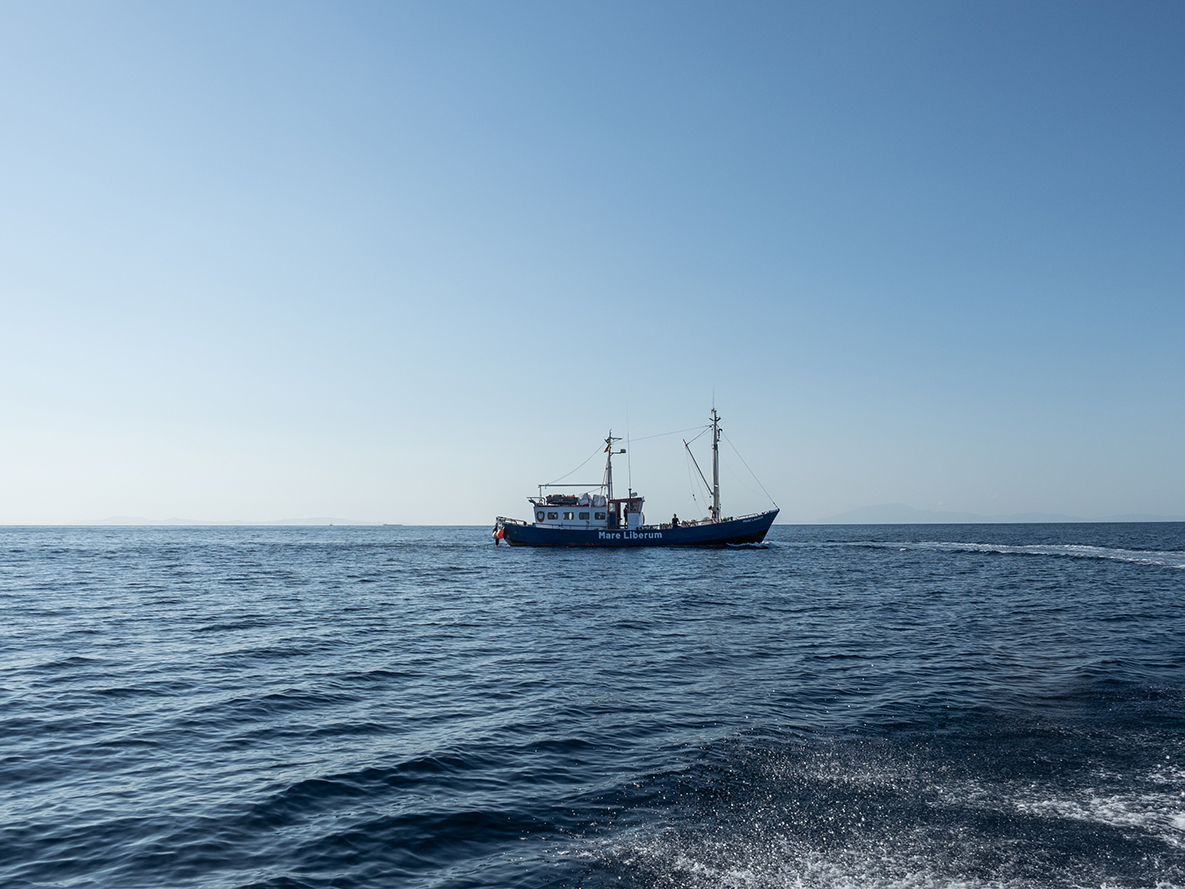CLOSE to 10,000 people were forcibly pushed back across the Aegean Sea to Turkey last year by the Greek coastguard and the European Border and Coast Guard Agency (Frontex), according to a human rights monitoring organisation.
Mare Liberum, a German NGO which, until recently, monitored migrant and refugee crossings between Turkey and Greece using a ship of the same name, published a report today showing an “unprecedented escalation” of human rights violations in the Aegean Sea last year.
Between March and December, the Greek and EU authorities were responsible for 321 pushbacks involving 9,798 people, the report says.
This information, the report’s authors say, was gathered from witness testimonies and analysis of cases highlighted by the Turkish coastguard and other NGOs in the area, such as Alarm Phone and Aegean Boat Report.
The report documents cases of migrants picked up by the Greek coastguards and put in life rafts before being pushed back towards the Turkish coast.
Others involved masked men boarding migrant boats and attacking them. Some of the victims were forced back to Turkey after reaching Greek soil, denying them their right to apply for asylum.
“These pushbacks are not isolated or extreme instances of European deterrence, but rather the current and everyday ‘modus operandi’ at the EU’s external border,” warned Paul Hanewinkel, one of the report’s authors.
“Pushbacks can only be understood as part of an inhumane and deadly policy of deterrence that is visible far beyond the borders of the Aegean Sea,” Mr Hanewinkel said.
“For these brutal pushbacks to stop, we call for independent control instances, the clarification of all previous cases and the abolition of Frontex, an agency which deliberately disregards the rights of refugees.
“We demand that all authorities involved in pushbacks are held accountable on a national and international level.”
Frontex spokesman Chris Borowski said: “Frontex is determined to uphold the highest standards of border control within our operation. Our officers are bound by the code of conduct that Frontex developed after consultation of our consultative forum.
“This code of conduct includes a paragraph specifically related to the prevention of refoulement and the upholding of human rights, all in line with the European Charter of Fundamental Rights.
“We are fully committed to protecting fundamental rights, and indeed we have an independent fundamental rights officer, whose task is to oversee the respect of fundamental rights in all our operations.
“Frontex has completed two stages of the inquiry into recent media allegations. An internal inquiry concluded that there was no evidence of a direct or indirect participation of Frontex staff or officers deployed in Frontex operations in alleged “pushbacks” in the Aegean Sea.
“A preliminary report issued by a working group within the Frontex management board found no evidence of any violations of fundamental rights in eight incidents in question. It is still studying five other incidents.
“It is important to note that the management board oversees the activities of Frontex and consists of representatives of EU member states, Schengen-associated countries and the European Commission.
“Frontex is working closely with the working group to look into these incidents and to upgrade our reporting mechanism to make sure no possible violation of fundamental rights goes unreported.”
The Greek authorities have been approached for comment.
Source: Morning Star



